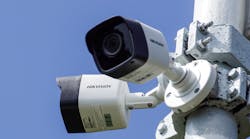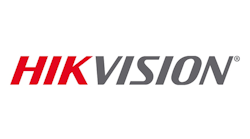President Joe Biden on Thursday signed into law a bill that will bar the importation and sale of new products from Hikvision, Dahua and other Chinese manufacturers in the U.S.
Dubbed the “Secure Equipment Act of 2021,” which was sponsored by Reps. Steve Scalise (R-La.) and Anna Eshoo (D-Calif.,) in the House and by Sens. Marco Rubio (R-Fla.) and Ed Markey (D-Mass.) in the Senate, the legislation requires the Federal Communications Commission (FCC) to formally adopt a rule it proposed earlier this year that would prohibit the agency from reviewing or issuing new equipment authorizations for companies that have been placed on its so-called “Covered List” of organizations whose equipment and services have been deemed as posing a threat to national security.
Aside from Hikvision and Dahua, the list includes several other high-profile China-based manufacturers, including Huawei, ZTE Corporation and Hytera Technologies.
“I applaud Senator Rubio, Senator Markey, Republican Whip Scalise, and Congresswoman Eshoo for their determination and leadership to secure America’s communications networks,” FCC Commissioner Brendan Carr said in a statement. “Their Secure Equipment Act is now the law of the land and will ensure that insecure equipment from Huawei, ZTE, and other untrustworthy entities can no longer be inserted into our communications networks. This gear poses an unacceptable risk to our national security. I am pleased with the overwhelming support their legislation has received in Congress to close the Huawei Loophole, and for President Biden’s signature enacting this important reform.”
The FCC will now have a year to officially adopt the rule on future authorizations.
One key difference between the legislation signed by the president and the previously proposed FCC rule is that the law would prohibit the rulemaking from requiring the review or revocation of equipment authorizations granted prior to its passage. In its initial proposal, the FCC had also sought comment on whether it should revoke previous equipment authorizations from the aforementioned vendors.
In a letter sent to its partners following the president’s signing of the bill, Hikvision hinted that a potential court challenge to the law may be forthcoming from “interested parties.” Here is the letter in its entirety:
Dear Valued Partner:
Today, the President signed H.R. 3919 into law, the same bill that the House of Representatives and Senate passed in October, to require the Federal Communications Commission to establish rules that would prevent the future authorization of communications equipment or services by certain companies, including Hikvision.
The FCC will have one year from the date the bill is signed into law to adopt final rules on future authorizations. As we noted before, the legislation makes clear that the FCC may not review or revoke any equipment authorization granted before the date on which such rules are adopted.
It is possible that the FCC might issue a public notice seeking comments that will extend its rule-making process. It is also possible that interested parties might challenge the constitutionality of this law in court.
In the meantime, Hikvision USA Inc. will continue to fulfill every single order from our partners and customers within our capacity and provide the professional services and support, as expected and needed.
We will continue to provide you with updates and answer any questions you may have.
A spokesperson for Hikvision said that the company would not be issuing any further comment on the matter.
Inquiries seeking comment from Dahua were not returned as of press time Friday.
Joel Griffin is the Editor of SecurityInfoWatch.com and a veteran security journalist. You can reach him at [email protected].






